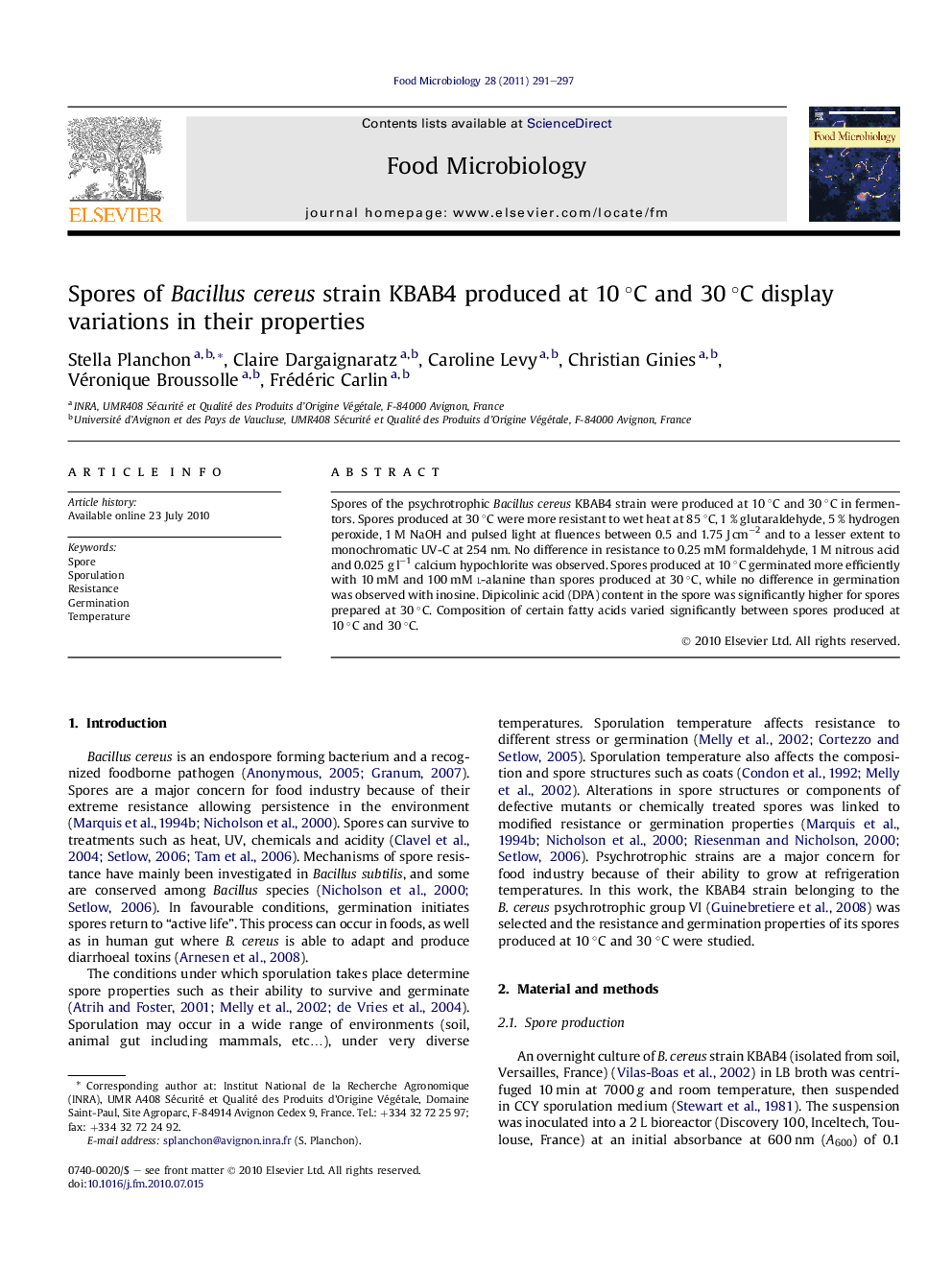| Article ID | Journal | Published Year | Pages | File Type |
|---|---|---|---|---|
| 4363244 | Food Microbiology | 2011 | 7 Pages |
Abstract
Spores of the psychrotrophic Bacillus cereus KBAB4 strain were produced at 10 °C and 30 °C in fermentors. Spores produced at 30 °C were more resistant to wet heat at 85 °C, 1 % glutaraldehyde, 5 % hydrogen peroxide, 1 M NaOH and pulsed light at fluences between 0.5 and 1.75 J cmâ2 and to a lesser extent to monochromatic UV-C at 254 nm. No difference in resistance to 0.25 mM formaldehyde, 1 M nitrous acid and 0.025 g lâ1 calcium hypochlorite was observed. Spores produced at 10 °C germinated more efficiently with 10 mM and 100 mM l-alanine than spores produced at 30 °C, while no difference in germination was observed with inosine. Dipicolinic acid (DPA) content in the spore was significantly higher for spores prepared at 30 °C. Composition of certain fatty acids varied significantly between spores produced at 10 °C and 30 °C.
Related Topics
Life Sciences
Agricultural and Biological Sciences
Food Science
Authors
Stella Planchon, Claire Dargaignaratz, Caroline Levy, Christian Ginies, Véronique Broussolle, Frédéric Carlin,
